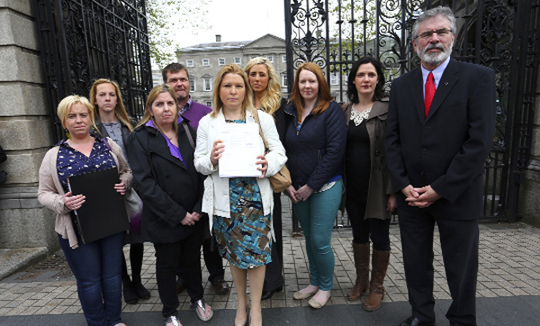A CAMPAIGN group is looking forward to a bright new year after receiving news that the HSE is to provide
?¬3.22 million in funding for cochlear implants.
‘Happy New Ear’, said it was thrilled to welcome the commencement of a bilateral cochlear implant programme due to the provision of the funding announced in the HSE Service Plan before Christmas.
Lorraine Murphy, a spokesperson for the group, vowed that there would be
“no more second best for Irish children
?.
“After a year of constant campaigning, fighting, meetings, petitions and begging we are thrilled with the outcome,
? she told Northside People.
“The programme will take time to set up but it is envisaged that the first simultaneous cochlear implant surgery, where they implant both ears at the same time, will take place in May.
“The first sequential implant surgery, where the recipient already has an implant, will commence in August.
“We have been helped along the way by so many people – TDs, journalists, parents and well wishers and we would like to thank them all for their support throughout the campaign.
?
Ms Murphy said a huge thanks was also due to the Joint Committee established by Sinn Fein president Gerry Adams and to all the HSE staff who met with them and listened to their children’s needs.
“A final thanks goes to the Minister for Health James Reilly,
? she stated.
“We know he was under more pressure than ever in this budget, and appreciate this more than words can say.
?
Ms Murphy added:
“At the start of this campaign it was our mission to leave a better landscape than we encountered, we hope we have met our remit.
?
The National Cochlear Implant Programme (NCIP) is located in Beaumont Hospital, which also said it welcomed the announcement.
The hospital currently carries out cochlear implants on an annual basis divided equally between adults and children, with surgeries on children being carried out in both Beaumont Hospital and Temple Street Children’s Hospital.
Cochlear implants can provide access to sound for people with severe or profound hearing loss. The device is surgically implanted and when coupled to an external processor, can provide access to speech and everyday sounds to aid or improve communications abilities.
Unlike hearing aids which amplify sound, cochlear implants can bypass the damaged part of the ear to directly stimulate the nerve endings within the cochlea.
The expansion of the programme will allow simultaneous bilateral cochlear implantation at the earliest opportunity, and a programme where patients who have already received one device can have the second implant.
